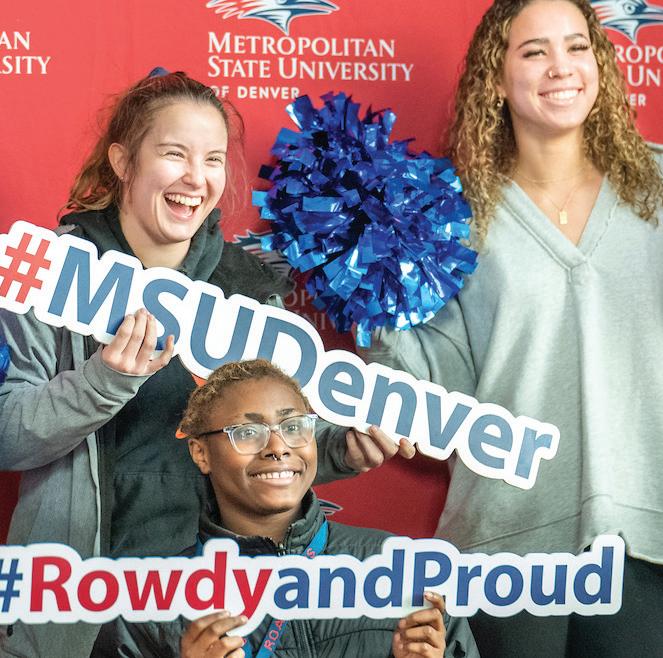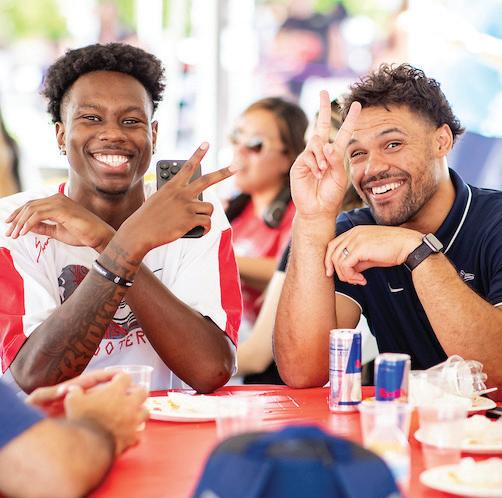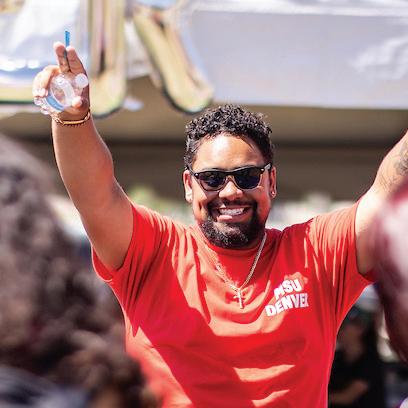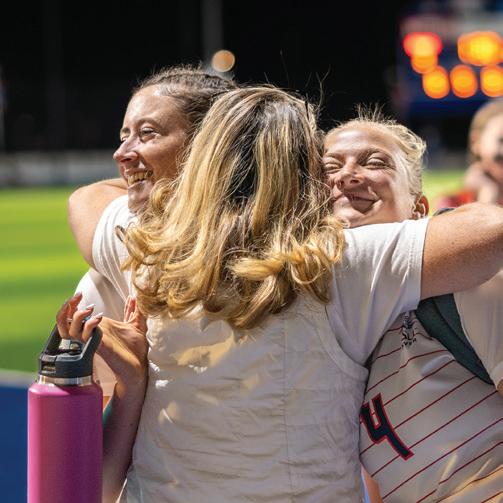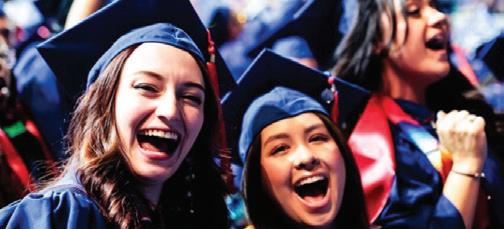
COLORADO’S ECONOMIC ENGINE








Metropolitan State University of Denver’s championship-winning aerobatics team spent the summer showing off its skills in contests around the country. Thanks to an anonymous donor, the team did so in style in a brand-new GameBird aerobatics plane, a highly maneuverable two-seater with a carbon-fiber airframe. “It’s a beautiful airplane,” said Dagmar Kress, the team’s coach and a lecturer in the University’s Aviation and Aerospace Science Department. “It’s a new design. They don’t break, and they don’t quit.” The new plane is helping young pilots hone their flying skills and preparing them for success in a high-demand field. The plane was officially unveiled Sept. 12 at Wings Over the Rockies at Centennial Airport.

For years, we’ve seen stories in the media about Americans questioning the value of a college degree. The stories posit that mounting tuition costs and loan debt have soured students and families on college and that a degree may no longer be the best path to a good career and long-term financial stability. But those narratives neglect to mention the work of regional universities, which educate 70% of all students who attend public four-year institutions. Schools such as Metropolitan State University of Denver are preparing students for in-demand careers without the high cost or burden of excessive loan debt. The average full-time resident undergraduate at MSU Denver pays less than $2,600 out of pocket per year.
A recent study from Georgetown University’s Center on Education and the Workforce also poured cold water on the idea that a college degree isn’t the best route to a meaningful career. The report predicts that 85% of “good” jobs will go to workers with some form of postsecondary education or training by 2031. Researchers define a “good” job as one that offers a minimum compensation of $43,000 per year and a median annual salary of $74,000 for workers ages 25 to 44.
While people question the value of higher education, MSU Denver responds by continuing to make an immense impact on Colorado. And we have the numbers to back it up. The cover story of this issue of RED Magazine showcases stats from a new University-commissioned economic impact report. It reveals that, despite a global pandemic and nationwide enrollment challenges, MSU Denver’s economic impact has grown. From workforce training to job creation, the University plays a key role in keeping Colorado’s economy vibrant.
In this edition, we also look at how the University is harnessing technology to help the environment. MSU Denver students and faculty are creating the Sustainability Hub — a machine learning-powered website that provides the public with economic, ecological and social data about Colorado. Daniel Pittman, Ph.D., an assistant professor in the Computer Sciences Department, is leveraging a $1.2 million National Science Foundation grant to train artificial intelligence to answer Coloradans’ conservation questions.
MSU Denver is shaping the future of health care in Colorado as well. Read on for an inside look at the new Interprofessional Simulation and Skills Laboratory, a centerpiece of the Gina and Frank Day Health Institute at MSU Denver. The “Sim Labs” offer students hands-on training and help address Colorado’s urgent health care workforce needs. Finally, no issue of RED would be complete without sharing the impact made by our extraordinary alumni. Learn how a formerly unhoused alumnus has combined his experience with a unique degree program to help people experiencing homelessness in Denver.
Whether you graduated in May or haven’t set foot on campus in years, I hope this issue of RED reminds you of the impact and value that MSU Denver and the Roadrunner family bring to our great state.
Sincerely,

JANINE DAVIDSON , Ph.D. President, Metropolitan State University of Denver
EDITOR-IN-CHIEF
John Arnold
MANAGING EDITOR
Dan Vaccaro
PUBLICATION DESIGNER
Aldrich Design COPY
Marcus Chamberland
Cliff Foster
Michael Haederle
EDITORIAL ADVISORY BOARD
Debora Gilliard, professor of Management
Brian Gunther, technical process and communications manager, School of Education
Jamie Hurst, assistant vice president for Strategic Engagement
Steve Juliff, communications specialist, School of Hospitality
Laura Miller, associate director of editorial and content operations, Communications and Marketing
Sam Ng, professor of Meteorology
Nicole Predki, senior lecturer, Department of Theatre and Dance
Andrea Smith, associate vice president of Strategic Communications
Rob White, director of Athletics Communications
Lynne Winter, associate director of Advancement Communications
RED Magazine is published by the Metropolitan State University of Denver Office of University Communications and Marketing. © 2024
Metropolitan State University of Denver. All rights reserved. Send correspondence and address updates to magazine@msudenver.edu
The opinions expressed in this magazine do not necessarily reflect the policies and opinions of Metropolitan State University of Denver or imply endorsement by its officers or by the MSU Denver Alumni Association. MSU Denver does not discriminate on the basis of race, color, creed, national origin, sex, age, sexual orientation or disability in admissions or access to, or treatment or employment in, its educational programs or activities.

Metropolitan State University of Denver ushered in the future of patient-centered health care in September with the opening of its Interprofessional Simulation and Skills Laboratory, or Sim Labs. The state-of-the-art space, a centerpiece of the Gina and Frank Day Health Institute at MSU Denver, features a nurses station, ambulance bay, home health lab and other simulated care environments. The Sim Labs let students put their learning into action to address Colorado’s urgent health care workforce needs. The state is estimated to have a shortfall of more than 10,000 registered nurses and 54,000 allied health positions by 2026.
“With the new Sim Labs, our programs will have the space to grow, allowing us to train and send even more skilled health care professionals into the workforce in the state they call home,” said Hope Szypulski, DNP, dean of MSU Denver’s College of Health and Human Sciences.
“I was a single parent of three kids, and it was very, very hard. But I did it.”
— LISA JOHNSON, A RECENT GRADUATE
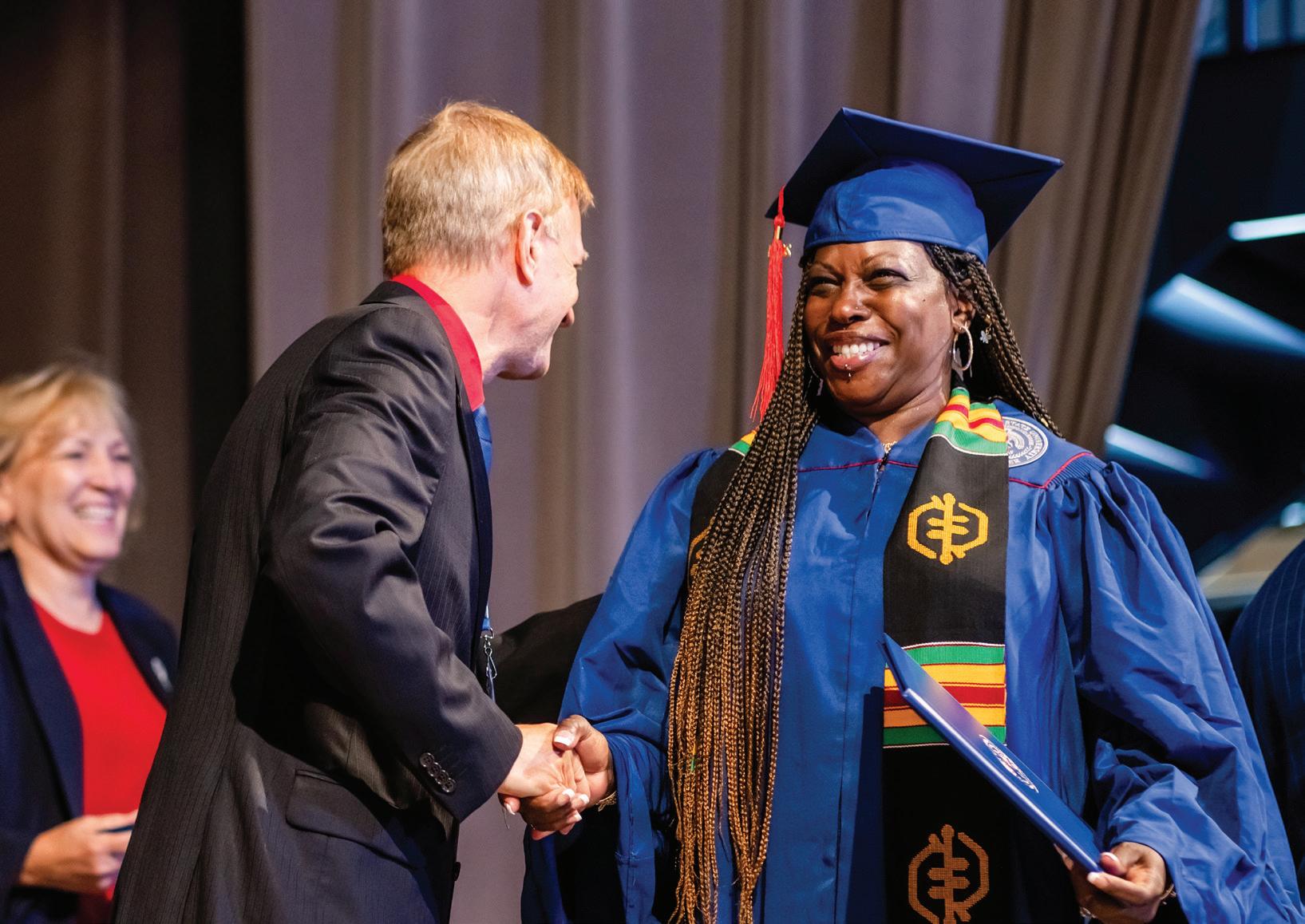
Lisa Johnson, a 59-year-old grandmother of six, was “overwhelmed” when she learned she would receive her degree.
“I couldn’t believe it,” she said. “I’m the first one to graduate from college in my family. It took me a long time.”
Johnson is among 336 former students who accepted Associate of General Studies degrees from Metropolitan State University of Denver this year, thanks to a 2021 bill passed by the Colorado legislature. The degrees were awarded to students who had accumulated at least 70 credit hours but stopped short of completing

their bachelor’s degrees.
Twenty-seven of those former students, including Johnson, were recognized in a first-of-its-kind event in June. More than 200 people attended the celebration, held on the Auraria Campus.
The University does not usually award associate degrees — it last did so in 1973, said Shaun Schafer, Ph.D., MSU Denver’s associate vice president of Curriculum, Academic Effectiveness and Policy Development. But the Colorado Re-Engaged (CORE) Initiative, established through House Bill 21-1330, allows

universities to grant associate degrees for stoppedout students who meet certain qualifications.
MSU Denver’s effort to offer the degrees started last year, when staff members in the Office of the Registrar worked to identify nearly 4,000 people who were potentially eligible. “We had this moment of ‘We want to recognize these folks,’” Schafer said.
Johnson, a Florida native who spent 20 years in the Army, took her first college course while she was stationed in Germany. Postings in various U.S. installations followed. “I was taking classes here and there at different universities, although I didn’t have a lot of time,” she said. “I was a single parent of three kids, and it was very, very hard. But I did it.”
Her final posting was in Denver. She enrolled at MSU Denver in 2010 and took classes in Early Childhood Education and Social Work while working at the Veterans Affairs Medical Center. But her life ground to a halt in 2020 when she got Covid and had to take six months off from work. Long-Covid symptoms forced her to pause her education, but Johnson plans to return to MSU Denver to complete a bachelor’s degree.
The pool of graduates receiving associate degrees this year was 58% male, and the oldest recipient was 76. They are from 15 states, and nearly 55% were firstgeneration college students.

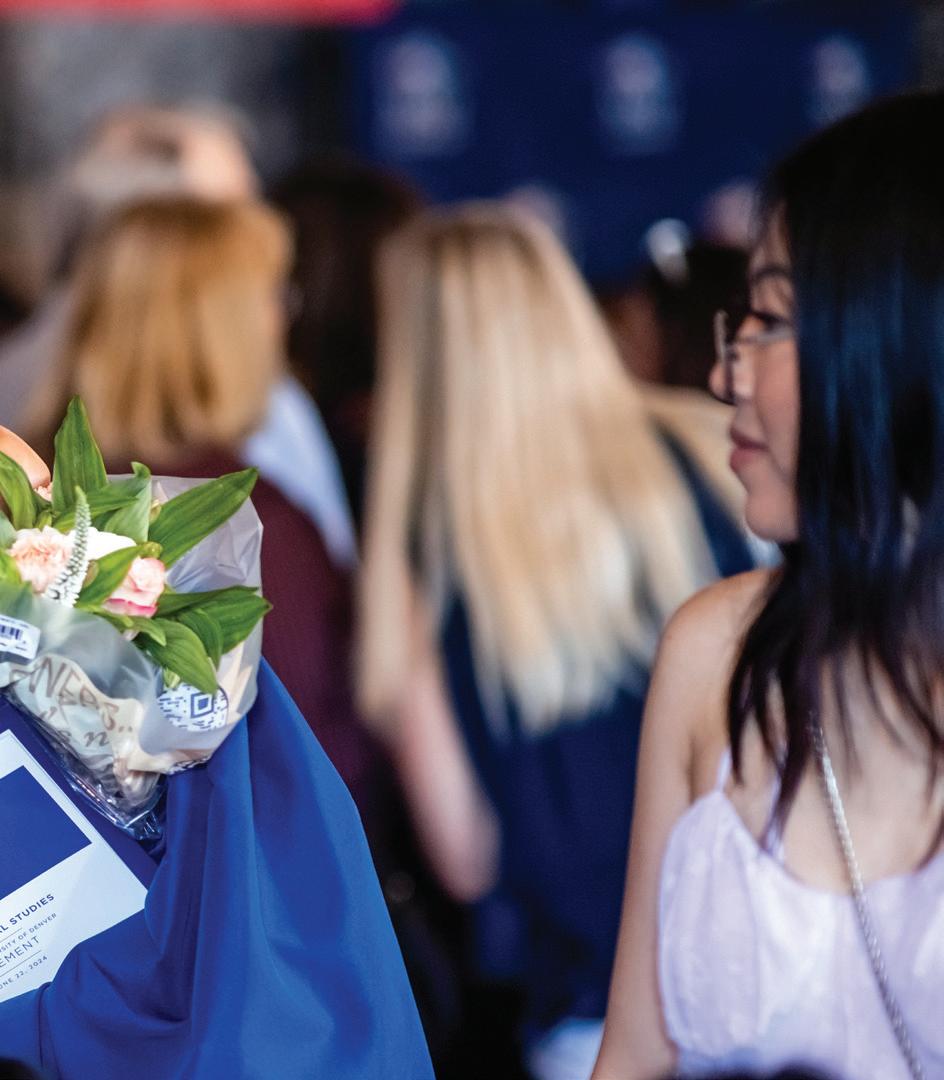
The promise of a college education is within reach for more Coloradans, thanks to a new state program that reimburses the cost of tuition and fees for eligible students.
The Colorado Promise program, administered by the Colorado Department of Higher Education, offers a tax credit for the first two years of in-state students’ education if they enroll in an area technical college, local district college, community college or university within two years of completing high school.
Many colleges and universities, including Metropolitan State University of Denver, offer institutional “promise programs” that cover costs for lowincome students. MSU Denver’s Roadrunner Promise covers in-state tuition and published mandatory fees for up to four years for students from households earning $60,000 annually or less. Colorado Promise will reimburse tuition and fees for MSU Denver students for up to two years if their households earn $90,000 a year or less and they meet other eligibility requirements.
“MSU Denver’s mission is centered on making a high-quality education accessible,” said Long Huynh, DBA, the University’s chief enrollment officer. “These promise programs help us fulfill that mission, and now even more students can embark on the path to a college degree.”
MSU Denver students who don’t qualify for the Roadrunner Promise program and have annual family incomes of $90,000 or less could qualify for Colorado Promise. The program, which was approved during the 2024 legislative session, is meant to target middle-income families who make too much to qualify for many need-based financial aid programs but for whom the cost of college still seems high relative to their income.

It’s important for students to understand that Colorado Promise requires them to pay for tuition and fees up front and then file a state income tax return to claim the credit, Huynh said. The reimbursement will come months after students have paid tuition and completed classes.
“Gov. (Jared) Polis is dedicated to building a ‘Colorado for all,’ and this initiative advances that goal for our state,” said Angie Paccione, Ph.D., executive director of the Colorado Department of Higher Education.
Colorado Promise will reimburse tuition and fees for MSU Denver students for up to two years if their households earn $90,000 a year or less and they meet other eligibility requirements.
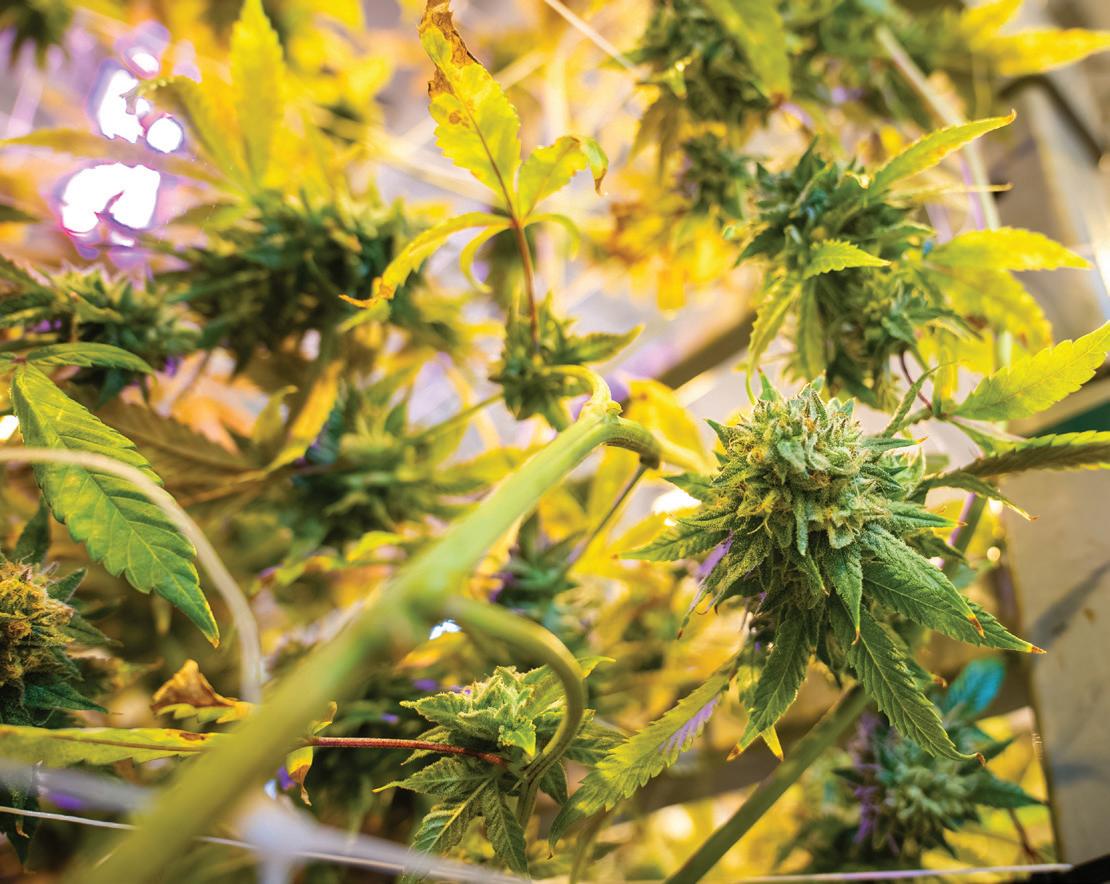
Once a pioneer in the legalization of recreational cannabis, Colorado has lost its footing as a leader in the industry, experts say, as more than 20 states have since followed suit.
A new certificate program at Metropolitan State University of Denver aims to serve as a catalyst in reviving the state’s reputation as the “Silicon Valley of Cannabis.”
MSU Denver will be the first higher education institution in the nation to offer students a comprehensive view of cannabis hospitality, with an emphasis on the supply chain, said Shannon Donnelly, an affiliate professor in the University’s School of Hospitality and a former cannabis regulator for the City of Denver. Students in the program will study a wide range of topics that will focus on the responsible sale and consumption of cannabis in dispensaries and in food preparation.
“This represents a significant leap forward in formalized cannabis education,” said Donnelly, who developed MSU Denver’s cannabis curriculum. “We’re defining cannabis in hospitality.”
The University will offer an entry-level Cannabis Hospitality Specialist certificate and a more advanced Cannabis Hospitality Manager certificate. Both certificates are offered to degree-seeking and non-degree-seeking students.
“We want to equip those working in the industry with the knowledge and skills to create an elevated experience, centered on high-quality, responsible customer service that can only truly be perfected through the hospitality lens,” Donnelly said. “If we’re going to create spaces that are safe enough for users of all levels to consume, we need to understand the entire supply chain.”

Along with the certificates, MSU Denver is forming state and international advisory boards that will provide recommendations to the University and collaborate on joint initiatives. The state board will aim to enhance student opportunities, develop curricula, promote social equity in the industry, foster research collaboration and identify financial resources.
The international board, meanwhile, will aim to contribute to the global standardization of cannabis education, explore international job placement opportunities, promote student exchange programs and provide insights on global drug-law reforms.

“It’s encouraging to see MSU Denver hoping to optimize new methods of consumption that allow people to interact with each other in hospitality settings, while keeping safety and responsibility in mind,” said MSU Denver graduate Albert Gutierrez, owner and president of the cannabis company Bud & Mary’s and a member of the state advisory board.
Gutierrez emphasized the importance of the leadership and management courses that will meet a significant need in the industry. “We need people who know how to navigate relationships since so many regulatory departments have to visit facilities to ensure compliance,” he said. “Sometimes, that professionalism is missing in this industry.”
Recent MSU Denver graduate Luke Mantych is a cocktail preparer for Workbench Dining, a private fine-dining experience that offers cocktail and gourmet cannabis pairings in a 10-course series.
Mantych is considering taking courses in MSU Denver’s Cannabis program to help advance his career. Such programs, he said, help remove the stigma associated with cannabis.
“People think of cannabis as something that can’t be sophisticated or elevated,” he said. “But there are avenues to make the experience as elevated as wine pairings, and it’s exciting that we’re moving in that direction.”


Madison Hailey Larsen spends a lot of time educating fellow college students about the political process and their right to participate. This year, she has had her work cut out for her, even on one of the most civically engaged campuses in the country.
Larsen, a second-year Marketing student, is one of four voter engagement student ambassadors at Metropolitan State University of Denver who facilitate voter education efforts across the Auraria Campus.
In past election years, their work has resonated. MSU Denver was recognized nationally in 2022 as a “Most Engaged Campus” and in 2016 had the highest undergraduate voting rate in the country. But even in the highly charged environment of a presidential election year Larsen is meeting many disengaged students.
“Which is where I come in and try to say, ‘Hey, here are reasons why you should care,’” she said.
Robert Preuhs, Ph.D., professor and chair of Political Science at MSU Denver, said that younger voters have come of age in an era when politics have become hyperpolarized, with issues such as climate change and abortion top of mind for many. But despite their reservations about the process, many people still intend to vote, he said.
The Voter Engagement Student Ambassadors project, which is funded in part by the Community First Foundation and The Denver Foundation, is nonpartisan by design, said Cara DeGette, an affiliate professor of Journalism at MSU Denver who serves as the program’s faculty advisor.
“We’re not promoting one political party or philosophy over any other,” she said. “It really is an effort to get students engaged and get them focused on civil dialogue and engagement in the public sphere.”
Four Metropolitan State University of Denver athletes competed at the highest levels of their respective sports this summer. As they pursued their dreams at the Olympics, Paralympics and U.S. Paralympic Trials, the Roadrunners continued to inspire the University community and others.
Former MSU Denver basketball star Nick Kay got a second shot at gold this summer as a key member of the Australian national team competing in the Paris Olympics. While the team, known as the Boomers, did not medal, it continued to showcase Australia as a global powerhouse on the hardwood.
Kay, who played for MSU Denver from 2011 to 2015, has been a consistent performer on the international stage. The 6-foot-8 forward helped the Boomers win their first Olympic basketball medal, a bronze, in Tokyo in 2021. “The goal (that year) was to go to the Olympics, and I was fortunate enough to get to do that,” he said. “And it just got me so hungry to want to do it again.”
Kay, 31, has been a two-time All-National Basketball League first-team selection in Australia. He has been a regular member of the national team since 2017.

Courtney Ryan netted another medal for the United States Women’s Wheelchair Basketball National Team at this summer’s Paralympic Games in Paris.
Ryan, a former MSU Denver women’s soccer All-American, transitioned to wheelchair basketball after a severe injury ended her soccer career in 2010. Paralyzed from the waist down, Ryan quickly became one of the top wheelchair basketball players in the country. In 2021, she was a key player for the U.S. Women’s Wheelchair Basketball National Team that secured a bronze medal in Tokyo.
In Paris, Ryan and her teammates aimed higher, leveraging their experience and determination. “We’re looking forward to showcasing what this team has got,” Ryan said before the Games. As it turns out, the team had more than enough, as it brought home a silver medal, solidifying its position as a top team in the sport.
Jonathan and Jordan Duran, standout runners at MSU Denver, made a bid for the 2024 Paralympic Games in France. The twins, who are on the autism spectrum, trained rigorously for the U.S. Paralympic Trials in July. The hard work paid off with solid performances in the 1,500 meters. Jonathan Duran took second place (4:02.21) and Jordan Duran placed third (4:03.82). But they fell just short of qualifying for Team USA in track and field.
top: Courtney Ryan (55) looks to the bench during the women’s wheelchair basketball game between Team USA and Team Netherlands during the Tokyo 2020 Paralympic Games. bottom: Jordan Duran (1962) competes in a men’s cross country race at Washington Park in Denver.

Regardless, their journey has been nothing short of inspiring. While training year-round for their shot at the Paralympics, the Duran duo balanced their athletic pursuits with academic excellence. They competed for MSU Denver in cross country in fall and then during the indoor (winter) and outdoor (spring) track and field seasons. The Hospitality Leadership majors also have excellent cumulative grade-point averages.
Their next hurdle? “The goal for cross country is to be (team) national champions,” Jordan Duran said. “We’re coming back for our teammates. We’ll be stronger and faster.”


MSU Denver’s nearly $1 billion impact fuels the state’s economy.
By John Arnold
Against the backdrop of a global pandemic, nationwide enrollment challenges and surging inflation, Metropolitan State University of Denver has emerged stronger than ever as a major economic driver in Colorado, contributing nearly $1 billion annually to the state’s economy.
MSU Denver’s economic footprint has grown from $700 million in 2019 to more than $950 million in 2023, according to a new Universitycommissioned economic impact report that also shows that the University supports and sustains more than 7,200 jobs across the state.
state funding for MSU Denver generated in the state’s economy impact
The report’s author credits MSU Denver’s “outsized impact” to its lean operating model that focused on student success amid global challenges.
“MSU Denver was positioned to navigate the storm,” said Nichole Parker, managing principal of Parker Strategy Group. “It’s not a bloated organization. While there were influxes of (pandemic relief) dollars, it has always been a good steward of its dollars.”
In conducting the research for the 2019 and 2023 reports, Parker considered among other factors MSU Denver’s operating expenditures: what it costs to pay for day-to-day operations, including student and campusvisitor spending.
The findings indicate an impressive return on investment for the State of Colorado. For every dollar it receives in
COMMITTED TO COLORADO’S FUTURE
96% of undergraduate students are from Colorado.
state funding, MSU Denver generates an $11.52 impact. The report reinforces the value of a college degree and higher education’s critical role in fueling the state’s economy, said Kishore Kulkarni, Ph.D., a distinguished professor in MSU Denver’s Department of Economics.
He noted that not only does MSU Denver support thousands of jobs across the state, the University provides highly skilled workers for the critical, in-demand industries that need them most, such as health care, aerospace, business and education.
“There is a misconception that a college degree is not that important,” Kulkarni said. “Obviously, that is the wrong argument when you look at the benefits you see in the long term. Our students get not only skills to get a job but skills to be critical thinkers, which is something that
76.5% of graduates live in Colorado after graduation as of 2023.
4.2% of Colorado’s workforce is supported by Roadrunner alumni and their spending.
2,975 Jobs supported by student spending
391 Jobs supported by visitor spending
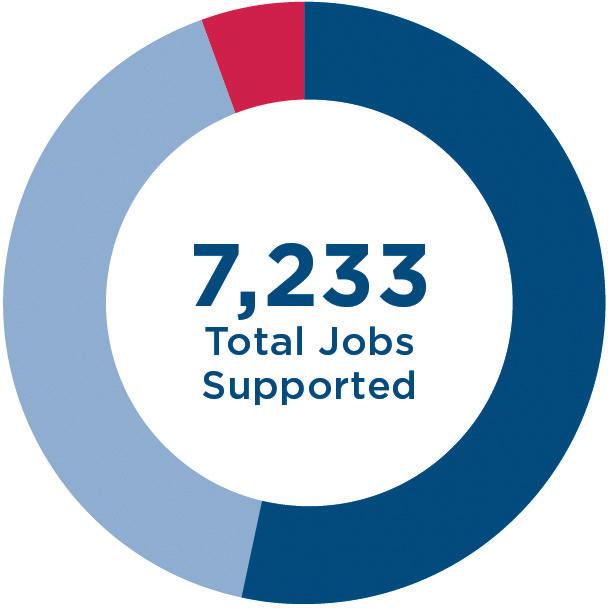
7,233 Total jobs supported
3,867 Jobs supported by operations
sets them apart from high-schoolers seeking jobs.”
The vast majority of MSU Denver graduates remain in Colorado after earning degrees, the report states. Nearly 83,000 alumni support more than 4% of the state’s workforce, and the University’s economic impact extends to all 35 state Senate districts, the report found.
Thanks to the University’s commitment to providing accessible education, MSU Denver contributes significantly to a more diverse workforce, graduating students who might not otherwise have attended or succeeded in college without the University’s robust student-support services, Parker added. Nearly 60% of MSU Denver undergraduates are among the first generation in their families to attend college.
“If not MSU Denver, then who is embracing these students and making sure they have the skills and tools they need to be a part of the workforce?” she said. “MSU Denver fills a unique role in the community. If these first-generation students are not welcome or do not receive proper services, they’re not going to stay.”
The 2023 report also highlights extraordinary growth in the University’s fundraising efforts, a crucial component in keeping MSU Denver affordable. The University drew $3.8 million in private contributions in 2012; in fiscal 2023, MSU Denver raised more than $15.8 million, a 315% increase.
“That’s a huge deal and huge testament that donors and alumni believe in MSU Denver’s overall value,” Parker said.

$953.8m generated in annual economic impact
“If not MSU Denver, then who is embracing these students and making sure they have the skills and tools they need to be a part of the workforce?”
— NICHOLE PARKER, MANAGING PRINCIPAL OF PARKER STRATEGY GROUP
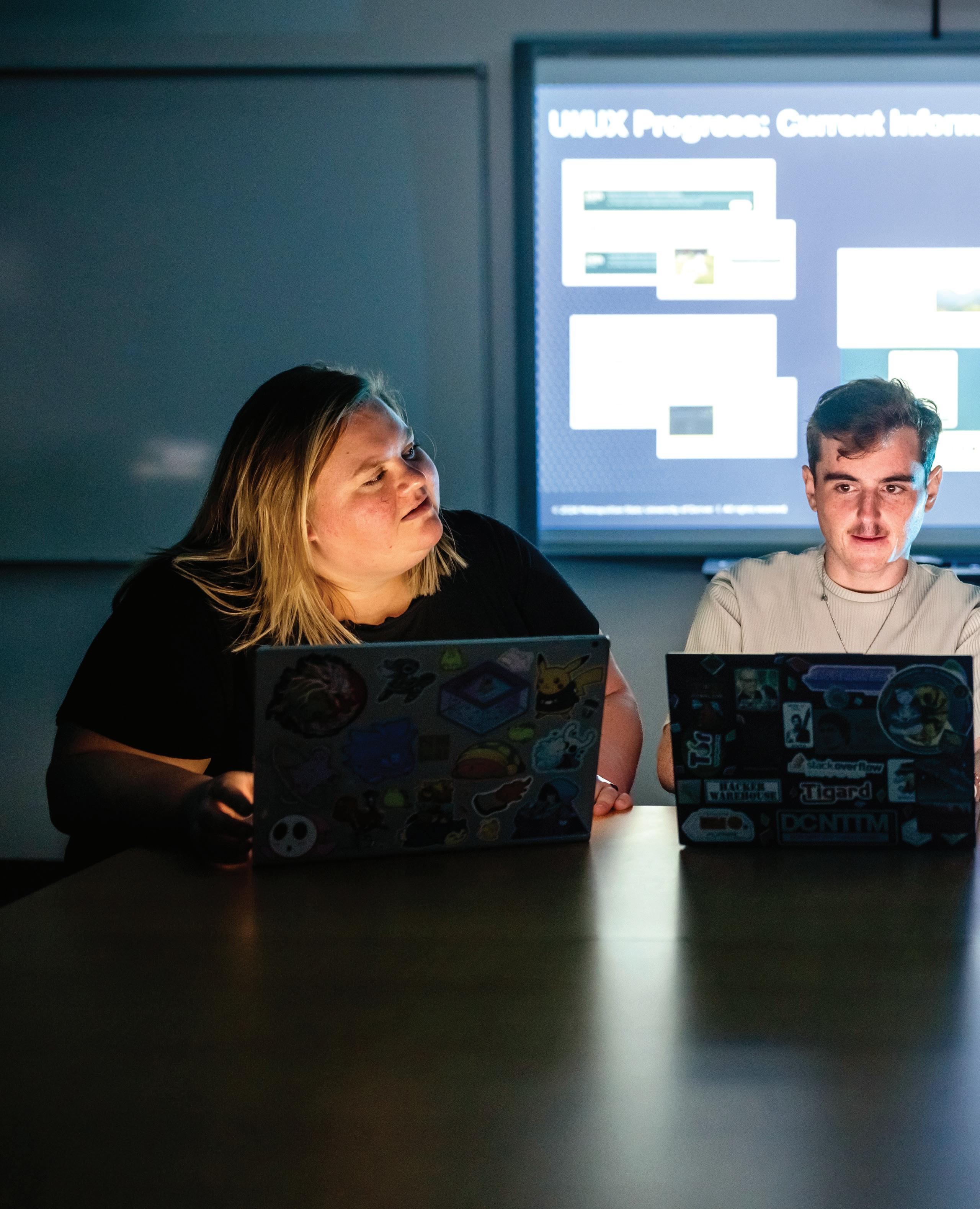
FACULTY AND STUDENTS HARNESS THE POWER OF MACHINE LEARNING TO DEVELOP A PUBLIC HUB FOR ENVIRONMENTAL DATA.
BY MICHAEL HAEDERLE

“The special thing about the Sustainability Hub is that it’s going to be for the community — the people of Colorado.”
—
In his former career as a software architect and more recently as an assistant professor of Computer Sciences at Metropolitan State University of Denver, Daniel Pittman, Ph.D., seldom gave much thought to sustainability.
These days, he finds himself leading a three-year, $1.2 million National Science Foundation research grant to develop MSU Denver’s Sustainability Hub — a website powered by machine learning that will support Coloradans seeking an array of economic, ecological and social data. Much of the software development for the project, which launched last October, is being done by MSU Denver students.
“It’s not that I had a bad opinion about sustainability,” he said. “I just never understood how I could apply my skills as a computer scientist to help it, until this opportunity.”
Pittman said the hub will serve community members, policymakers and researchers. The website will make it easier for people to find the great research already being done in Colorado around issues such as air quality or water quality. The key, Pittman emphasized, is making the site approachable.
That’s where machine learning comes in. Pittman envisions a ChatGPT-like interface that allows users to pose queries using natural language and helps them refine their ideas. A user could say, “I live in Denver, and I want to learn about air quality,” and the system would provide a visualization of the data, as well as a natural-language description of what it means.
“That’s the part I’m really excited about,” he said. “I want to give people not only the visualization but natural language: ‘You are seeing air quality and water quality in Denver overlaid. These are the points that we found. This is what’s interesting about the data. Is this what you’re looking for?’ If the user answers, ‘No, I didn’t quite mean that,’ the system will help them further refine the results.”
Pittman, who worked at companies such as Lockheed Martin while pursuing his doctorate, joined the MSU Denver faculty full time in fall 2022. He is the administrator of the National Science Foundation grant, which was developed to help Minority Serving Institutions such as MSU Denver expand their research footprint. He credits his colleague Elicia Ratajczyk, Ph.D., a research scientist at Colorado State University, for suggesting that he develop the grant proposal.
The project includes partners at the University of Northern Colorado, CSU Fort Collins, CSU Pueblo and the University of Denver, Pittman said. At MSU Denver, the funding has allowed for the hiring of Project Manager Alyssa Williams, a recent graduate from the University’s Computer Sciences program, and a cadre of students who have taken on various aspects of the website design as full-time interns.
Luke Farchione, a senior majoring in Computer Sciences, is part of the team working on the Sustainability Hub’s machine learning and natural-language processing components. He contributes to the training of the large language models, or LLMs, that are crucial for developing a chatbot that can “converse” with users. He also assists in cataloging the extensive data sets used in training these models, ensuring accurate and meaningful user interactions.

...|
I’d like to compare data on air quality in Denver and Aspen... ...|
Can you help me find some statistics on water usage in Colorado Springs?


He had taken several classes with Pittman, who told him about the research opportunity. “I was head over heels for it,” Farchione recalled. “Programmers often find themselves as tiny cogs in a huge corporate machinery. The special thing about the Sustainability Hub is that it’s going to be for the community — the people of Colorado.”
Fourth-year student Jacqueline Hernandez leads the user interface/ user experience (UI/UX) team, which has prototyped a design for an informational website to keep the community up to date on the project. Her work in UX design is crucial in ensuring that the platform is intuitive and engaging for users.
“Moving forward, we’ll transition the informational website into the actual application,” she said. The team anticipates that the application will go live in 2025.
Hernandez took a mobile application development class with Pittman and enjoyed his teaching and mentorship. She became interested in working on the project with him and hoped to gain some real-world experience before graduating. As part of the team, she has gotten to work with new programming tools, probe the “black box” of machine learning and learn about data harvesting.
Daniel Pittman, assistant professor of Computer Sciences at MSU Denver, facilitates discussion about the project in a classroom.

“The learning experience for me has been unprecedented,” Hernandez said. “This has really taken my computer science education to another level.”
Hernandez also has a personal stake in the project’s mission.
“Sustainability is something I’m passionate about, growing up in Colorado,” she said. “It has been an important part of my life, going to the mountains and enjoying the outdoors. I had an interest in being involved in a project that’s aligned with my values.”
Pittman acknowledges that the ambitious scope of the Sustainability Hub and its reliance on an artificial intelligence tool will require close supervision to ensure the accuracy of its results.
LLMs such as ChatGPT sometimes “hallucinate” and provide wildly inaccurate information. Given that the data provided through the Sustainability Hub might wind up being used by parties in a lawsuit, for example, one concern is whether the model might provide biased output.
“Without proper guardrails, it absolutely will take a side,” Pittman said. “It would be foolish to assume that the large language model we use is
not implicitly going to have biases. The real question is: How do we fix it and protect our users? A lot of that comes down to how we prompt the LLM.”
But chatbot developers know they can’t fully control the output of their LLMs. The model’s machine learning capability means it develops its own “understanding” of the data. One way to mitigate this challenge is to ensure that the sources of the data are always shown, and another is to prevent the opportunity for data to be hallucinated when it is displayed, Pittman said. He added that the data will always come straight from the source and only its description will be generated by the LLM.
There are certainly challenges ahead but also opportunities.
Pittman said the system will allow users to build communities of interest on the website around aspects of sustainability that they are passionate about.
“The key phrase that we like to use is ‘We are trying to democratize access to sustainability in Colorado,’” Pittman said. “So anyone who wants to learn can find information on our website. That’s really what we want to build.”

By cultivating young artists and providing them with pathways to careers, MSU Denver faculty and staff set the stage for Colorado’s thriving arts community. BY
LAURA MILLER AND STAFF

Early in his acting career, Bill Murray suffered a crisis of confidence. A terrible experience on stage led him to believe he might not want to live anymore. He walked toward Lake Michigan, thinking he would throw himself in, but found himself instead at the Art Institute of Chicago.
“I just walked right through (past a person soliciting donations) because I was ready to die,” Murray later told an interviewer. At the museum, he saw Jules Breton’s 1884 painting “The Song of the Lark,” in which a barefoot woman holding a sickle stands in a field at sunrise.
“I saw it that day, and I thought, ‘Well, there’s a girl who doesn’t have a whole lot of prospects, but the sun’s coming up anyway,’” Murray said. “And she’s got another chance at (life), and I think that gave me some kind of feeling that I, too, am a person and get another chance every time the sun comes up.”
Stories such as Murray’s aren’t uncommon. Art connects people and, for many, gives them a reason to go on.
The evidence isn’t just anecdotal. According to the article “What Is Art Good For? The Socio-Epistemic Value of Art,” published in Frontiers in Human Neuroscience, arts engagement enhances cognitive abilities, emotional expression and social skills. The article also highlights the arts’ role in improving academic performance, reducing stress and fostering creativity.
“A lot of really important skills come from studying art,” said Cecily Cullen, director of Metropolitan State University of Denver’s Center for Visual Art. “Seeing possibilities, being creative and developing critical thinking are all things that come from studying art, and those skills can be applied in a lot of different careers.”


“The best part is watching their confidence grow.”
— PALOMA RESS, A MUSIC STUDENT AT MSU DENVER
Cullen is among a cadre of faculty and staff members at MSU Denver working to develop the next generation of artists, musicians and theatre professionals in Colorado. Through its community programs, the University awakens hundreds of young people to their artistic potential while also offering innovative degrees that prepare them to put their skills into practice.
At the tail end of Denver’s Santa Fe Arts District stands a modest building whose exterior belies the incredible performances happening inside. This site, known as the Kalamath Building, serves as a satellite location for MSU Denver’s Music Department and supports partnerships with local nonprofits, offering opportunities for middle school, high school and college students to share their love of music.
The MSU Denver Foundation purchased the building this year.
Shane Endsley, a lecturer in MSU Denver’s Music Department and building coordinator, said the University saw even greater potential in the site’s resources, equipment and unique space. He credited Peter Schimpf, former chair of the department, and the late Ron Miles, who taught in the department for two decades, with developing partnerships that have made the building into a community arts space.
Miles, founder of MSU Denver’s Jazz and American Improvised Music program, facilitated a partnership between the University and the Colorado Conservatory for the Jazz Arts. The
organization recruits students from local schools that don’t have jazz bands and gives them a space to practice.
“Initially, we worked out of the founders’ basement,” said Jonathan Zimny, CCJA program coordinator. “But MSU Denver gave us a place to call home.”
Paloma Ress, a Music student at MSU Denver and former CCJA participant, saw the success of the partnership firsthand. She serves as a mentor for high school and middle school students.
“The best part is watching their confidence grow,” Ress said. “They start out shy and introverted, but then they develop friendships and start taking risks with what they’re playing, which is a big part of jazz.”
Zimny said the Denver-area jazz community is stronger because of this unique partnership.
Katie Taft, education manager at MSU Denver’s Center for Visual Art, has been a teacher, studio artist and hot-dog vendor while pursuing her artistic endeavors. For the past six years, she has been running the CVA’s Art + Action Lab Teen Internship program, which lets high school students learn about arts careers and participate in skill-building workshops.
“We want to give the teens a wide understanding of what’s in Denver, as well as personal connections to actual individuals who are doing the work that they might want to be doing,” Taft said.

Taft offers the students a chance to connect with many kinds of creative professionals. Guest speakers have included a tattoo artist, a filmmaker and a creative services manager. Many of the guests are people Taft has known for years. She tells the students candidly how she and the artists have helped one another personally and professionally. Taft draws heavily on her career journey to show students what is possible when you consider your passions and connect with other creative individuals.
As Kelley describes it, designers come in with big ideas of the worlds they want to portray on stage, but the technicians have the hands-on skills to execute the design.
“So it’s still an artistic endeavor,” Kelley said. “The goal is, I think, to immerse people in the story, and we’re all just kind of helping push that story forward.”
That ensemble spirit was what attracted Kelley Reznik, an alumna of the BFA program, to the field.
Reznik, an assistant stagehand at the Denver Center for the Performing Arts, considered studying Astrophysics when she started at MSU Denver. She decided to take an Intro to Stagecraft class for fun and knew within five minutes that she was in the right place.
“I found that theatre really pulled out my gregarious, authentic self,” she said. “And I found a community in theatre that I just had not really found in any other studies.”
opposite: Music students practice together after a jazz ensemble workshop in MSU Denver’s Kalamath Building. above: Students make a short film in the CVA’s Art + Action Lab, which offers in-depth programming for teens interested in creative careers. below: Work-study students hang lights for a production of “Footloose.”
Whether mentoring young artists or teaching new skills to theatre professionals, faculty and staff members at MSU Denver know how crucial it is for artists to bring stories to life. Without good mentors, Breton might not have painted “The Song of the Lark” and, consequently, the world might never have known the talents of Bill Murray.
And a world void of Bill Murray — and artists like him who inspire others to pursue their passions — isn’t a world anyone should have to endure.
For MSU Denver student Astrid Wenham, a former teaching apprentice in the program, the chance to connect with near-peers was eye-opening.
“Everyone comes in so shy, especially me,” Wenham said. “I feel like working with a group of younger people was amazing for me to break down my walls and learn how to engage with strangers.”
When you hear the word “theatre,” you might not think about lighting technicians, makeup artists and props artisans. Yet these members of a theatre crew are essential to any performance’s success.
MSU Denver’s Department of Theatre and Dance has built a reputation for nurturing professionals for these often-invisible roles.
“I think one of the most interesting things about working in the field (of technical theatre) is that when you do your job absolutely correctly, almost nobody notices that you’ve done anything,” said Professor Brian Kelley, the department’s technical director and coordinator for the Bachelor of Fine Arts program in Applied Theatre Technology and Design. “They just buy it as part of the environment of the show.”

Sarena Espinoza is living her dream as the community-affairs manager for the Colorado Rockies. With decades of experience playing softball and a Sport Management degree from Metropolitan State University of Denver, she’s not only fulfilling her goal of working in sports but actively giving back to the community.
Espinoza credits her parents for putting her on the path to that dream. They didn’t get to go to college, but they gave her opportunities by paying for softball lessons and instilling a strong work ethic.
When Espinoza was a senior in high school, she was invited to visit MSU Denver and was offered a softball scholarship. “The opportunity to play softball in college — I just couldn’t pass it up,” she said. “What really drew me to the University was the Sport Management program. I wanted to work in sports, and being in a city that had several professional sports teams … it all just made sense.”
Espinoza enrolled in 2014. Besides softball, she committed to her studies and worked in the University’s Athletics Department, where she learned “what it takes to make it in sports.”
In 2018, an opportunity presented itself. The Rockies contacted MSU Denver, hoping to find a 50/50 Raffle coordinator. Espinoza, who was nearing graduation, applied. “Something just told me I had to trust it and go for it,” she said. “It was baseball. It was my dream.”
In the months that followed, Espinoza helped establish the 50/50 Raffle, a fundraising program that benefits the Colorado Rockies Foundation and MSU Denver students. MSU Denver volunteers facilitate the raffle at Coors Field during home games. Each game, half of the jackpot goes to one lucky fan, and the other half is split between the foundation and the University.
Now in her seventh season with the Rockies, Espinoza also relishes overseeing the team’s popular youth baseball and softball camps. She feels a strong sense of purpose and gratitude from her work.
“Everything I’ve earned and where I’m at in my life now is because of those decisions and making a leap,” she said. “I’m sitting here looking at Coors Field right now, feeling very grateful.”
SARENA ESPINOZA IS WINNING AS THE COLORADO ROCKIES COMMUNITY-AFFAIRS MANAGER AND HELPING LOCAL NONPROFITS HIT THE JACKPOT.




As a child, Hamilton Nickoloff asked his grandmother why unhoused people didn’t have homes. Even then, he wasn’t satisfied with the answers. He had no way of knowing he would one day be unhoused or that a degree from Metropolitan State University of Denver would enable him to help others experiencing homelessness.
Nickoloff knows what it means to struggle, citing his history with substance abuse, mental health challenges and homelessness. He wanted to help people in similar circumstances but wasn’t sure if a college degree was realistic, given his zigzag path. He was surprised by what he found at MSU Denver.
“I was stoked to learn that I could take all of my myriad studies and combine them into a uniform degree plan,” Nickoloff said. “It was beautiful for somebody like me.”
His life experiences became a jumpingoff point for a degree in Social Policy and Human Welfare through the University’s Individualized Degree Program, which allows students to customize a degree through interdisciplinary study.
After graduation, Nickoloff got to work helping people experiencing homelessness in Colorado. He did so during unprecedented times. Fueled by a housing crisis and worsened by the Covid-19 pandemic, homelessness in the state increased by 39% in 2023, according to a point-in-time snapshot, the Colorado Coalition for the Homeless reported.
HAMILTON NICKOLOFF DRAWS ON HIS EXPERIENCE TO HELP COLORADANS STRUGGLING WITH HOMELESSNESS.
Empowered by his degree, Nickoloff got a job at the coalition, which connects thousands of Denverites with housing and health care each year. He works on a large team and with an ever-changing group of clients. “We are dealing in human services, which comes with the complexity of humans,” he said.
For Nickoloff, diving headfirst into those complexities means acknowledging barriers to access, an insight that led him to co-found a nonprofit that helps clients obtain services after getting into housing. Within the next decade, Nickoloff hopes to turn his boots-on-the-ground experience serving the region’s unhoused into a career representing them in Denver City Council and beyond.
“If we want people to recover from those experiences, we’ve got to wrap them in, to show that they’re worthwhile,” he said. “The solutions are very much right in front of us.”
For more than two decades, the Denver Zoo has been the perfect habitat for Leslie Chenaille.
As director of public safety and emergency management, Chenaille oversees the zoo’s day-to-day security and emergency planning, which ensure the safety of more than 2 million annual visitors.
When Chenaille joined security at the zoo, she noticed some deficits in the human side of emergency planning compared with what the animal team had in place. “There were things the group hadn’t even thought about, because they didn’t have the threats we do now,” she said.
LESLIE CHENAILLE
FOUND A PASSION FOR GUEST SAFETY AT THE DENVER ZOO.
In short, it was a jungle out there. But Chenaille, a 2006 Biology graduate from Metropolitan State University of Denver, was up for the challenge of building out the emergency management program. Along the way, she discovered her passion for keeping people safe.
Protecting guests at Colorado’s most visited cultural destination wasn’t always the plan. Chenaille originally wanted to attend medical school. But three years into her studies at Colorado State University, a Neuroanatomy class changed that. Dissecting a human brain was too much to manage, she said.
Chenaille, a lifelong lover of animals, transferred to MSU Denver, adding a Zoology concentration and Hospitality minor to her degree program. She also started as a seasonal cashier at the zoo, where she has been ever since, serving in education and guest services and now as head of security.
She keeps her team focused on maintaining a customer-oriented, immersive experience. She wants to sustain an environment where guests know they’re being kept safe, allowing them to relax and connect with the animals.
The zoo isn’t rejuvenating only for guests. When Chenaille is having a difficult day, she visits the animals. (She describes the hyenas as her “babies.”) The experience reminds her why she is there.
While Chenaille acknowledges that her work is different from what she learned in getting her Biology degree, she has found a unique way to help animals.
“I love what I do,” she said. “It took a while for me to get here, and I took a lot of different side roads and pathways, but in the end I knew I wanted to be at the zoo.”


LANI VIGIL (B.S. Business, ’69; B.S. Business Management, ’70) has had a lifetime of adventure. She traveled the world with her now-deceased husband for their consulting business and has lived in Costa Rica. She earned her master’s degree from the University of Colorado Boulder and taught adult education in Denver Public Schools and at Red Rocks Community College. She stays busy working with her civic association, serving on the Bear Creek Water District board, gardening, beekeeping and more.
ALDON MOCHIDA (B.S. Civil Engineering Technology, ’76) in July 1977 took a job in Maui, Hawaii, where he served as project
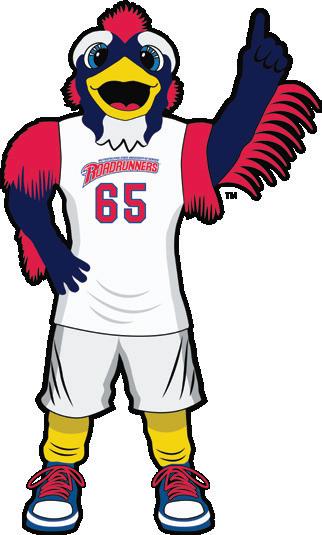
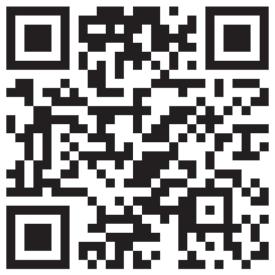
engineer for the construction of the Kapalua Bay Hotel. For the past 47 years, he has built hotels, condominiums, shopping complexes and more. A highlight of his career was when he had the opportunity to construct the King Kamehameha Golf Club clubhouse using Frank Lloyd Wright’s design.
GARY FARMS (B.S. Mathematics, ’78) is a retired software engineer. He has taught GED classes to people who are incarcerated for the past nine years and loves it.
CLAUDE CHRISTENSEN (B.S. Land Use, ’80) retired to Sadieville, Kentucky, after a successful federal career that spanned 36 years and included military service as well as work for the U.S. Department of the Interior and the Peace Corps. Christensen has since served as mayor of Sadieville, president of the Scott County Chamber of Commerce, president of the Kentucky League of Cities and chairman of the board of Bluegrass Tomorrow Inc.
O. MARIE SMITH (B.S. Health Care Management, ’83) graduated from MSU Denver
when she was 43, following a 14-year career in radiology technology at National Jewish Hospital. The flexible class schedules allowed her to attend school and work full time. She then went to work for the U.S. Department of Energy in Grand Junction as a contract administrator and small business advocate for the removal of uranium mill tailings and as a manager for Diversity Management Programs. A decade later, Smith moved to San Antonio, Texas, to serve as the senior contract administrator for the Base Realignment and Closure team at Kelly Air Force Base. She also served as the national president of the Enlisted Association Auxiliary and is most proud of creating the Widows Emergency Fund for military spouses seeking medical services.
After graduating, CARRIE LEGGOTT (B.S. Computer Management and Science, ’84) joined business consulting firm TRW as a software programmer. Leggott recently retired as the director of Advanced Systems and Technology with the National Reconnaissance Office, where she led and managed a diverse portfolio spanning artificial intelligence-related technologies such as cognition
and machine learning. She is passionate about driving AI innovation and transformation.
TIFFANY O’SHAUGHNESSY , Ph.D. (B.S. Psychology, ’03), was recently promoted to full professor in the Department of Counseling at San Francisco State University. O’Shaughnessy is also a licensed psychologist with a private practice.
R. COULTER REYES (B.S. Psychology, ’07) enlisted in the U.S. Navy after graduating from MSU Denver and was promoted to commander in April 2024.
JILLIAN MORRISON (B.S. Psychology, ’08; B.S. Human Services, ’11) holds a master’s degree in Social Work from the University of Denver and is a licensed clinical social worker and addiction counselor. She has worked professionally in community corrections, community mental health, hospitals, the nonprofit sector and private practice and for the State of Colorado. Morrison has had an amazing career and continues to serve adults, youth and families as a clinician and supervises newly graduated social workers, addiction counselors and therapists.
Since graduation, LATANYA
BROWN (B.S. Social Work, ’09) has obtained a master’s degree in Social Work, emphasizing military culture and families. Brown worked as a social worker for Denver Public Schools for several years and is currently a trauma therapist with the Arapahoe County Department of Human Services and Denver Springs. She is also the president of the Association of Black Social Workers Colorado Chapter.
JENNIFER KRAAI (B.A. English, ’10) taught English in South Korea from 2013-16, then attended Arizona State University to earn her master’s degree in Social Work. Kraai is now a licensed clinical social worker for the U.S. Department of Veterans Affairs in Des Moines, Iowa.
ROCIO DIXON (B.S. Behavioral Science, ’15) and her husband (a fellow Roadrunner) run a real estate brokerage, a mortgage company and three nonprofits. As their businesses continue to grow, they hope to offer internships to MSU Denver students and employ graduates.
Continued on Page 30.
By Bob Mook
Barbara Grogan could have easily imparted wisdom when she spoke at Metropolitan State University of Denver’s Spring Commencement ceremony. Instead, the pioneering businesswoman decided to celebrate the success of MSU Denver’s graduates. Why?
“I don’t inspire them; they inspire me,” Grogan said before her speech.
At the ceremony in May, Grogan received the Marathon Award, MSU Denver’s highest honor.
Grogan first connected with the University over a decade ago after former MSU Denver President Stephen Jordan, Ph.D., and the Board of Trustees committed to providing in-state tuition for residents regardless of immigration status.

Business pioneer and philanthropist Barbara Grogan received MSU Denver’s highest honor at the Spring Commencement ceremony.
Inspired by what she called the University’s “courage and conviction,” Grogan made a significant charitable gift to fund MSU Denver scholarships for undocumented students. Later, she was introduced to students who benefited from the donation and started meeting them regularly for lunch.
“I got to know MSU Denver through the eyes of students,” she said. “They give me hope in our future.”
In recent years, Grogan has gotten more engaged with the University. As the former chair of MSU Denver’s Board of Trustees, she was instrumental in the appointment of Janine Davidson, Ph.D., as president. Grogan now serves on the board of the MSU Denver Foundation.
Grogan was born in St. Louis and attended the University of Colorado Boulder. After graduating, she took a job at the regional phone company and started a family. After her marriage ended,
Grogan founded Western Industrial Contractors in 1982.
“Life sort of threw me a curveball,” she said of the end of her marriage. “I thought it was the worst thing that ever happened to me, but it catapulted me into this life that I could have never imagined.”
Western Industrial Contractors flourished with help from Grogan’s entrepreneurial skills and supportive mentors. The plucky construction company built security and baggage-handling systems at more than 300 airports and added several well-known clients.
On the heels of the company’s success, Grogan was named the first female chair of the board of the Federal Reserve Bank of Kansas City (Denver Branch) and the Denver Metro Chamber of Commerce, among numerous high-profile positions.
Grogan sold her business in 2004 and shifted her focus to philanthropy, largely involving education. She considers her work with MSU Denver to be among the most fulfilling accomplishments of her life.
“MSU Denver is such a marvelous place that feeds my soul,” she said. “I am profoundly honored to receive this award and grateful for my ability to participate there.”
FATIMA KIASS (B.A. Sociology, ’16) has always been passionate about serving the most vulnerable populations. As a result, Kiass founded Empowered Connections, a management consulting firm focused on inspiring service providers and participants through education, advocacy and action.
While pursuing his degree, KIERAN BOES (B.A. Political Science, ’21) focused heavily on choral singing under Music Professor MB Krueger and volunteered with the Evans Choir in 2019. Since then, he has sung at events throughout Colorado and the United States and performed at Carnegie Hall in New York. He has also toured Europe and sung in Vienna and Prague. Now, Boes has his eye on pursuing a career in public service, concentrating on sustainability or the arts.
ERIC MARTINEZ (B.A. History, ’21) earned a Master of Education degree in Curriculum and Instruction at the University of Colorado Colorado Springs while teaching eighth grade social studies in southern Colorado. Since 2023, Martinez has been the regional director of the Mule Deer Foundation, an organization focused on the conservation of
mule deer, black-tailed deer and their habitats.
SHAYE PAGE (B.S. Biology, ’22) is a zookeeper at Tiger World Endangered Wildlife Preserve in North Carolina, where she takes care of animals ranging from birds to small cats, lions and tigers, using her knowledge of animal behavior to aid in the conservation of various species. Page credits her teachers at MSU Denver — Jen GagliardiSeeley, Ph.D.; Bob Hancock, Ph.D.; and Christy Carello, Ph.D. — with helping her make her dreams come true through education.
JENNIFER PERKINS (Master of Social Work, ’22) is working in her second year as a schoolbased therapist in the Cherry Creek School District, providing individual and group therapy and conducting wellness groups. Perkins became a licensed social worker in 2023 and will soon complete her Marriage and Family Therapy certification through the Denver Family Institute.
DANIEL WEINERT (B.S. Cybersecurity, ’22) is a compliance analyst for Tri-State Generation and Transmission Association Inc., a local electric utility cooperative that spans
four states. He handles federal regulatory compliance matters related to cybersecurity and technology.
MONICA GONZALEZ (B.S. International Business, ’23) finds that the tools she gained through her degree program have given her the skills to manage and grow her company, Andesflair. She works with local artisans in her home country of Ecuador, promoting and selling their
handmade, eco-friendly jewelry and projects made of alpaca wool.
After completing his education and collegiate baseball career at MSU Denver, KEEGAN VIALPANDO (B.A. Sport Management, ’23) became a financial service professional with New York Life, where he provides clients with strategies to reach their financial goals. Vialpando loves what he does and loves helping people.
Each year, Metropolitan State University of Denver’s Alumni Association recognizes distinguished graduates during Homecoming festivities. At the Alumni Awards Luncheon in September, the University celebrated the Roadrunner excellence embodied by the following award winners.
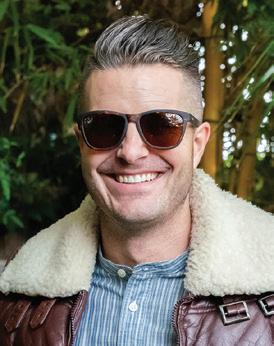
Stephen Lease | 2016 | Marketing
When Stephen Lease launched goodr in 2015, he and his co-founders set out to design running sunglasses that were affordable, stylish and all-performance. Since then, goodr has grown to more than 140 employees and its award-winning sunglasses are sold in more than 5,000 locations worldwide. In addition to his CEO duties, Lease is the co-host of the CULTURE goodr Podcast. He has been featured in Inc. magazine and on “Entertainment Tonight” and is a sought-after speaker.
The Nees Family, Hal Nees | 1976 | Law Enforcement
With the passing this year of Sally Nees, widow of alumnus and Emeritus Professor Harol (Hal) Nees, Ph.D. (who died in 2013), the couple’s generous planned gift to MSU Denver has come to fruition. The gift of about $350,000 will be added to the Dr. Hal Nees Memorial Endowed Scholarship Fund, which provides financial support to students pursuing criminal justice careers. Hal Nees worked in that field for nearly three decades and afterward spent 13 years as a faculty member in the University’s Criminal Justice and Criminology program.
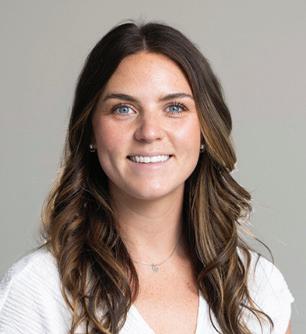
Alyssa Svalberg | 2018 | Human Performance and Sport
Alyssa Svalberg has been the assistant director of facilities for the Gold Crown Foundation in Lakewood since 2020. She manages day-to-day event coordination, staffing, maintenance and facility risk management. In her role, she is heavily involved in the community, hosting food drives and other events. In 2023, she joined the MSU Denver Alumni Association Board of Directors. A former MSU Denver volleyball player, Svalberg was named Sport Management Student of the Year before graduating cum laude in 2018.
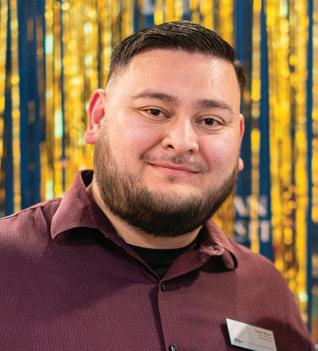
Carlos Alcala | 2019 | Management
Carlos Alcala is the senior human resources partner in MSU Denver’s Office of Human Resources. A first-generation college graduate, Alcala earned a bachelor’s degree in Management with a concentration in Human Resources Management. Over the past six years, he has made significant contributions to the University’s HR team. His dedication to professional development is exemplified by his having earned a Professional in Human Resources Certification. He has also mentored numerous colleagues and students.
MSU Denver’s Black Alumni Network has made a remarkable impact on the University since its inception in 2020. Through dedication and collaboration, BAN has been at the forefront of several significant initiatives that have strengthened the alumni bond and fostered connections between students, graduates and the broader community.
Recognizes 10 accomplished alumni who have graduated in the past 10 years

NIKKI
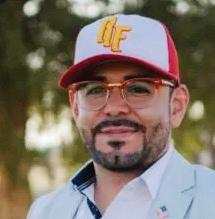

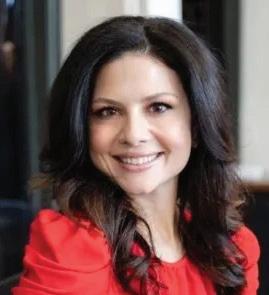
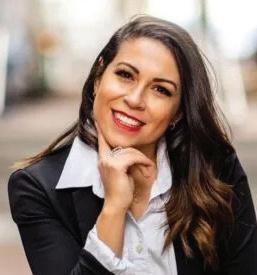
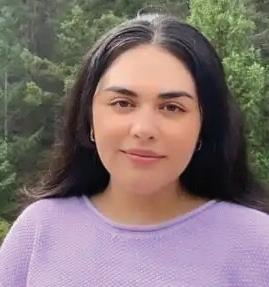
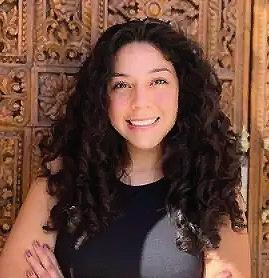
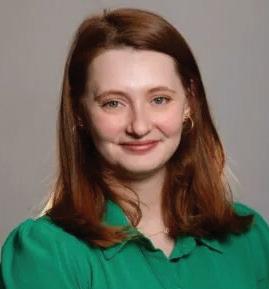
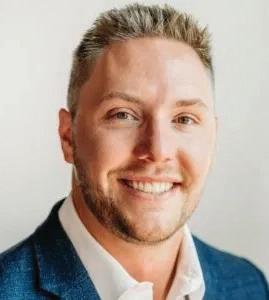

Metropolitan State University of Denver continues to provide students with opportunities to gather wisdom from some of the country’s preeminent leaders. Over the past several years, University President Janine Davidson, Ph.D., has hosted a series of campus conversations with government and industry icons, inspiring students to get connected and make a difference in their communities.
In April, Davidson welcomed retired Marine Corps General Jim Mattis as part of the President’s Speaker Series. Mattis and Davidson discussed world events, international diplomacy and the importance of public service. Mattis shared personal anecdotes, including some life-changing advice.
“A commanding officer once told me, ‘The only shortcut to happiness lies in serving others,’” he said. “Put yourself in the company of those who are less selfish, and you’ll find greater meaning.”
During the candid discussion at the Auraria Campus’ King Center, Mattis also addressed the pro-Palestinian demonstration on campus, saying students should celebrate their right to self-expression. When dealing with complex issues, he suggested listening to understand rather than speaking and staying open to others’ ideas without rushing to find fault. His message of open-mindedness and respect for diverse opinions resonated with the audience.
In February, food historian Adrian Miller captivated the campus community with the story of his journey from lawyer and public policy advisor to renowned food writer.
The two-time James Beard Award winner joined Davidson for a Fireside Chat and shared reflections on the transformative power of kindness, storytelling and going the extra mile. He recounted his path from practicing law in Denver to serving as a public policy advisor for the One America Initiative, alongside former President Bill Clinton, and eventually becoming a nationally recognized food historian.
Miller discussed the significance of
diversity in the United States culinary scene and emphasized the need to embrace diverse narratives in food storytelling. This allows culinary writers and consumers to gain a comprehensive understanding of American cuisine. He also spoke passionately about the essence and origin of soul food, the subject of his award-winning first book, “Soul Food: The Surprising Story of an American Cuisine, One Plate at a Time.”
Last year, MSU Denver hosted General Laura J. Richardson, the highest-ranking woman in the U.S. Army and an alumna of the University. In a spirited conversation with Davidson, the general related details from her illustrious career as an Army officer and helicopter pilot and provided invaluable leadership insights.


The event coincided with the Cities Summit of the Americas, where leaders from across the nation came together in Denver to promote regional cooperation. Following the conversation, students had the opportunity to attend a U.S. Department of State Career Showcase featuring Uzra Zeya, the undersecretary of state for Civilian Security, Democracy and Human Rights. Zeya highlighted opportunities in public service.
top: Food historian
Adrian Miller (left) laughs with an audience member at a Fireside Chat. bottom: Retired U.S. Marine Corps General Jim Mattis, who served as the 26th secretary of defense, addresses the crowd at a President’s Speaker Series event.

Mary Sullivan, a recent graduate of Metropolitan State University of Denver’s Fine Arts program, is breaking barriers in skateboarding. The owner of Girls Skate Denver is committed to creating safe, inclusive spaces for women and queer skaters, challenging the male-dominated norms of the sport.
by Alison Meyer
“Women and queer skateboarding is one of the last true rebellions,” Sullivan said. “We embody the ethos of the sport. There aren’t supposed to be rules or hierarchy — that was never what skateboarding was about.”
Sullivan’s trailblazing mindset was shaped by her education at MSU Denver, where her senior thesis, a photography project called “Take Up Space,” highlighted women and queer skaters. Her time at the University broadened her perspective, influencing her approach to inclusivity in the skate community.
But the changemaker’s passion for skating started years earlier. Sullivan, who grew up in Greenwood Village, was a lonely kid. Her life path did a 180 when she found her brother’s VHS copy of “Welcome to Hell,” the first video to feature a woman skater. Fired up, Sullivan borrowed her brother’s board and headed to the skate park.
“There was a lot of harassment and belittlement,” Sullivan said, recalling her early experiences in those parks. “If I were a different person, it might have broken my spirits, but I knew I wasn’t going to take any of that from those dudes.”
So she kept showing up. She taught herself to skate and took up space. Eventually, the skateboarding community took notice — Sullivan wanted change, and she wouldn’t take no for an answer.
Sullivan ultimately found her community. In 2019, she attended a Ladies Skate Night event and got involved with the organization responsible for it, eventually teaching clinics and lessons. When its leader left, Sullivan took over ownership of the organization, changed its name to Girls Skate Denver and expanded its offerings. Her vision is to empower women and queer people of all ages to feel more confident through representation.
Sullivan’s work has inspired others, such as Charli Alexander, founder of Queer Skate Denver. “Skate parks have always been ‘for the boys,’” Alexander said. “The second I stepped into my first class with Girls Skate Denver, Mary immediately felt like she’d become a best buddy and had my back.”
As skateboarding gains popularity, Sullivan is excited to expand Girls Skate Denver, bringing a more inclusive approach to the sport. “Women and queer people just bring a different kind of hype to a skate session that is so pure and joyous,” she said. “Once I had that, I knew I could do anything.”
LYLE E. DEHNING , former professor of Accounting, died May 5 at age 91. Dehning joined MSU Denver in 1967 as one of the first faculty members. During his 33 years as a fulltime Accounting professor, he taught thousands of students and is fondly remembered for his wonderful sense of humor. He also maintained a private accounting practice until his death. Dehning’s life was marked by his love for family and travel. He visited all 50 states and over 50 countries, often planning international trips for large groups of friends. Despite his professional commitments, he prioritized coaching youth baseball, volunteering in Scouts and playing football with his sons. Dehning rarely missed his sons’ events and continued this tradition with his grandchildren and greatgrandchildren.
IBON IZURIETA , Ph.D., educator and associate dean for Operations, Policy and Personnel within the College of Letters, Arts and Sciences, died March 4 at age 61. He was a dedicated educator and academic and an enthusiastic ambassador and champion of Basque culture. Originally from Bilbao, Spain, Izurieta earned his doctorate in Spanish and master’s degrees in Spanish and Comparative Literature from the University of Iowa. Over the years, he contributed to his
scholarly field through numerous book chapters, journal articles and presentations. Izurieta came to MSU Denver in 2008 as a Spanish faculty member in the Department of World Languages. He earned the rank of associate professor in 2014 and professor in 2018. Izurieta was the longest-serving associate dean in CLAS. In recent years, he focused on operationalizing collegewide diversity, equity and inclusion-related efforts and led the CLAS DEI Committee. He also took great pride in representing Basque culture in Colorado, serving as a board member and Basque language instructor with Colorado Euskal Etxea (Colorado Basque Club). His colleagues will remember Izurieta for his love of and tireless work for MSU Denver.
M. “GENE” LEE , Ph.D., former professor of Health, Physical Education and Recreation, died Jan. 21 at age 92. After earning his doctorate at the University of Utah, Lee accepted a position at MSU Denver as the head of the Health, Physical Education and Recreation Department, retiring in 1996. In addition to his classroom responsibilities, he coached the Roadrunners men’s basketball team from 1975-78. Lee was a lifelong fan of the Green Bay Packers and loved hunting, golfing, car trips, the National Western Stock Show and coffee.
ANDREW SPEER , professor emeritus of Art, died March
12 at age 72. Speer served as chair of MSU Denver’s Painting Department from 1990 to 2005, one part of a 35-year teaching career spanning California, Colorado and his home state of Kentucky. He distinguished himself as an artist, thinker and innovator, earning the Colorado Council on the Arts COVision Award, a Kentucky Arts Council Al Smith Fellowship, a National Endowment for the Arts/Southern Arts Federation Regional Fellowship, a PollockKrasner Foundation Grant and a Reader’s Digest Artists at Giverny Residency. His paintings are in numerous private, corporate and public collections across the United States. Speer was known to his friends as a gentle, thoughtful and unassuming man with a mischievous sense of humor.
KEVIN GEORGE (B.S. Finance, ’89; B.S. Accounting, ’05) died last Dec. 26 at age 57. In addition to his two degrees from MSU Denver, George earned a master’s in Business Administration from the University of Hartford campus in Paris. Starting in high school, he worked in the family business and went on to a career in tax preparation. George was blessed with a brilliant mind, incredible memory, quick wit and fantastic sense of humor. He enjoyed
reading, listening to music, taking walks and spending time with his treasured friends, family and dogs.
MARTHA “MICKEY” HOLLINGSWORTH (B.S. Psychology, ’94) died Jan. 12, 2023, at age 81. Hollingsworth was an avid reader, mainly of fiction and mysteries. She loved animals and had many throughout her life.
RILEY “GENE” JOHNSON (B.S. Law Enforcement, ’75) died July 22, 2022, at age 83. As a child in Georgia, Johnson developed a love for golf after volunteering at Augusta National. In his early years, he shined shoes to supplement his income and worked with his brother for an ambulance company in Savannah. Later, Johnson worked for a land surveying company and served in the Georgia National Guard and as a Georgia State Police officer. After graduating from MSU Denver, he started a private practice as a forensic criminologist and became a golf pro; his favorite job was teaching kids to golf at Kennedy Golf Course. When he retired, Johnson volunteered for the Arapahoe County Court. He loved outdoor activities, making people laugh and food, having no qualms about driving hours for BBQ and grits.
ROBERT “BOB” LOHNE (B.S. Aviation Management, ’74) died April 27 at age 71. Lohne is remembered as an incredible father, grandfather, son, brother,
partner and co-worker. His family honors his life, memory and passion for aviation by going to the local airport to watch the planes take off.
ROY MORGAN (B.S. Aviation Management, ’82) died April 4 at age 88. Morgan loved helping others learn, improve and succeed. In 1980, he founded Air Methods Corp. after a personal experience convinced him that properly equipped and staffed air medical service helicopters were a must. The company has grown into one of the world’s largest air medical transportation systems. Morgan was inducted into the Colorado Aviation Hall of Fame and received many awards for his contributions to aviation, including being recognized as a Living Legend in Aviation. He was also an excellent flight instructor, a skilled photographer and an allaround handyman. Morgan’s family and friends will remember him as a man who did things in the biggest way, whether showing his love, his never-ending optimism or his eagerness to help.
AHERN NELSON (B.S. Mathematics, ’19) died in June at age 26. Nelson was a beloved brother and friend known for his brilliant mind and compassionate spirit. He enjoyed exploring complex ideas and creative pursuits, including playing piano, which he taught himself. Nelson’s thoughtful nature and deep curiosity inspired everyone around him.
RONALD REHMS (B.S. Accounting, ’72) died Dec. 25, 2022, at age 79.
By Lynne Winter
With the passing this year of Sally Nees, widow of alumnus and Emeritus Professor Harol (Hal) Nees, Ph.D. (who died in 2013), the couple’s generous planned gift to Metropolitan State University of Denver has come to fruition.
The gift of about $350,000 will be added to the Dr. Hal Nees Memorial Endowed Scholarship Fund, which was established in 2014 to provide scholarship support in perpetuity to MSU Denver students with a declared major in Criminal Justice and Criminology and a passion for pursuing a career in that field.
“We are grateful to Hal and Sally Nees for their generosity and for the trust they placed in MSU Denver as we worked together to ensure that the intention of their gift is realized,” said Shelley Thompson, associate vice president of University Advancement. “Their thoughtful planning will help future students achieve their dream of earning a degree.”

Hal Nees, who graduated from MSU Denver with a degree in Law Enforcement in 1976, dedicated his life to Colorado communities. From 1970 to 1991, he rose in rank from officer to division chief with the Boulder Police Department. During his time with the department, he helped create the first domestic violence prevention program in Boulder County. Nees also served as police chief in Durango from 1991 to 1993 and as director of Community Corrections for Boulder County from 1993 to 1998. He earned a master’s degree in Criminal Justice and a doctorate in Public Administration from the University of Colorado Denver.
Nees rejoined the MSU Denver family in 1998 as an assistant professor of Criminal Justice and Criminology, dedicating the next 13 years to transforming students’ lives. He served as chair of the Faculty Senate for four years and as faculty trustee for two years before retiring as a full professor in 2011. He was awarded emeritus status in 2012.
Loyal donors for over a decade, Hal and Sally Nees left an indelible mark on MSU Denver. Their support culminated with making the University a beneficiary of their estate, and their legacy will live on through scholarship recipients starting in the 2025-26 academic year.
LEARN MORE about planned giving at: msudenver.mylegacygift.org.
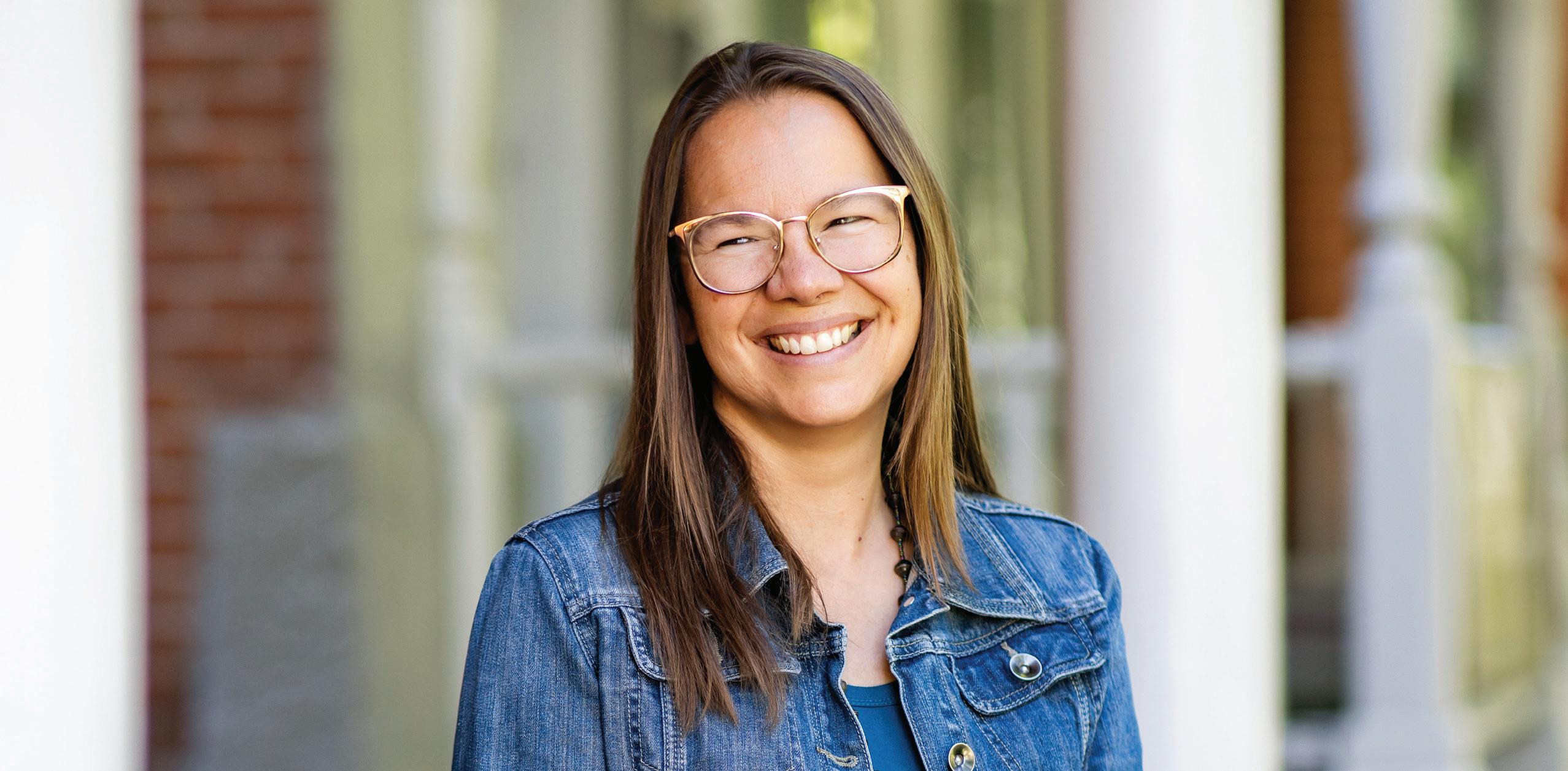
Encampments protesting Israel’s military action in Gaza emerged across college campuses this spring. The Auraria Campus was no exception. Pro-Palestinian demonstrations presented challenges for students, faculty members, staff members and campus leaders. Metropolitan State University of Denver’s Dialogues Program played a key role in facilitating listening sessions to learn from these challenges, said Christina Foust, Ph.D., professor of Communication Studies. Launched in 2020, the program has hosted dozens of events, including Dialogue and Civic Engagement Week.
RED Magazine spoke with Foust, who joined the Dialogues team in 2020, about the program’s importance.
How is your program’s approach to dialogue different from traditional discussion formats? Dialogue as a mode of talk invites people to enter a highly intentional space together, one where we agree to certain norms for our talk, such as to listen from a place of genuine curiosity. A dialogue at MSU Denver invites participants to share personal experiences, ask questions of each other and listen deeply. Such practices push us outside of our comfort zones but also work to keep us from replicating communication that harms others. There is no “winner” in a dialogue. Instead, we hope to build relationships between people.
What do you aim to achieve with the program? A lot of our work in supporting people through communication practices might seem small, but it makes a big difference when practiced regularly. We try to model how to ask questions, how to demonstrate active listening, how to share and receive personal experience and how to repair if mistakes are made. Things such as meta-communicating (or talking about how we talk to each other), agreeing with others in advance on what norms and commitments guide our contact, and being accountable to those agreements can make such a difference in building trust. When trust is built, people feel OK to share their experiences, to dig deeper into what might have led them to believe something or to value what they value, which can include either optimistic and truthful views of others or can include misinformation or stereotypes. We hope to inspire more reflective and reflexive communication.
What’s next for the program? We hope to offer more formal opportunities to students for facilitation training and practice as well as continued dialogues on campus. We facilitated several listening sessions in May and June related to the pro-Palestinian protest encampment on campus and are preparing to share themes from these sessions. We’re also planning to continue Dialogue and Civic Engagement Week in April 2025.

New students flocked to the Auraria Campus for Convocation in August, marking the start of another fall semester at Metropolitan State University of Denver. The first official event of the academic year included a welcome from MSU Denver President Janine Davidson, Ph.D., and motivational remarks from retired football player Ryan Harris, who was an offensive tackle for the Super Bowl champion Denver Broncos in 2016. Those addresses were followed by a lively — you might even say rowdy — celebration, complete with food, games, music and oodles of Roadrunner spirit.
P.O. Box 173362
Denver, CO 80217
